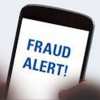
Preventing credit card fraud in the digital age is almost impossible. Scammers are getting more and more creative with this crime, in Jamaica and elsewhere. So much so that the National Commercial Bank frequently alerts its customers about how to spot such fraud and ways to prevent it.
But if being robbed via your credit card now feels inevitable, it doesn’t mean you can’t lessen the chances it happens to you. Your first defence, of course, is to keep your information safe. Don’t tell anyone your credit card details, especially via email or text. Never give out your information over the phone unless you can verify you are talking to a legitimate representative from a trusted number that you called yourself. Never give information to numbers that have been left in your voicemail, email or text. Don’t overexpose your credit cards. People can take pictures of your card to steal your information.
Similarly, ensure credit card numbers are not accessible to just anyone. You should, for example, shred any paper with your credit card number on it. Though it might be convenient at times, saving your information online increases the risk of other people gaining access to it. Likewise, never save your information on public computers, and avoid entering personal information on public computers or through public Wi-Fi unless you are using a VPN (virtual private network) that will protect you from hackers. Finally, think of using payment apps like PayPal, Apple Pay, Google Pay or similar options that offer added protection by generating a temporary account number for each transaction so that you can avoid using your primary card number.
Even after taking all that precaution, it is still important to stay alert. Check the amount on your credit card receipt and never leave blank spaces that could be filled in by someone else after you’ve signed. Be sure to sign up for email or phone notifications that let you know each time your card is used. Keep track of card activity by reviewing statements often to see if past transactions look unfamiliar. Look out for phishing scams in your email. If the email address or message seem at all fake, chances are it is attempting to trick you into giving up your information. Rather than click on a link to a website in your mail, go directly to legitimate, trusted sites yourself. Even then, only enter information with an https:// web address or lock beside it indicating that it is secure. Also, be on the lookout for credit card skimming devices at ATMs that can capture and store credit card information. If anything looks off about the machine, leave and go to another one.
Finally, if you have reason to believe you have been the victim of credit card fraud, be sure to report it to try and stop it from going through, to minimize the impact, or, at the very least, to prevent it from happening again. Be sure to also report lost or stolen cards as soon as possible to limit the chance of them being used by someone other than yourself.
For more information like this, also check out our past post on staying cybersafe.
